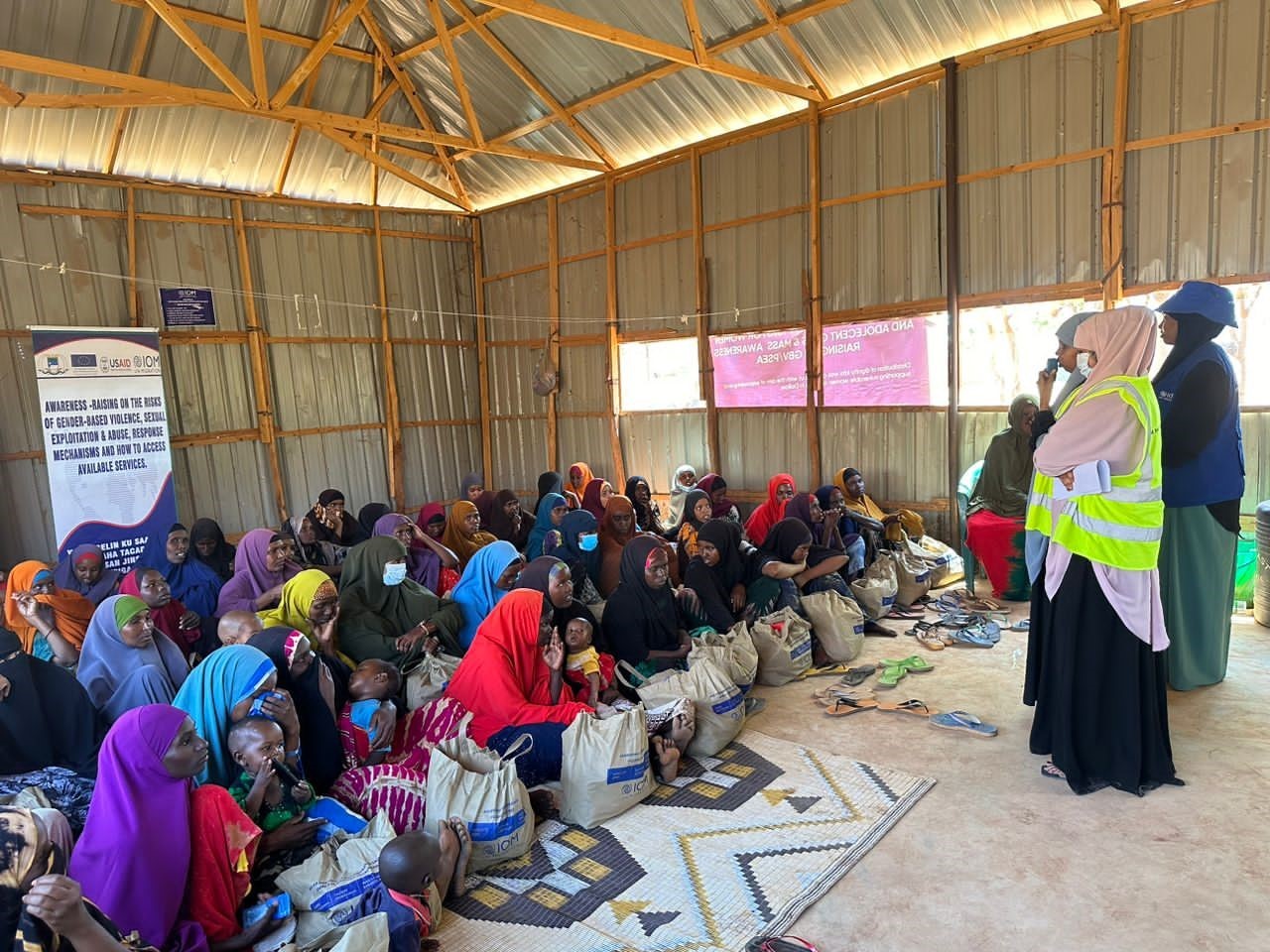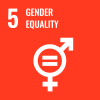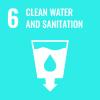Danyar Camp, Somalia – “In Lower Shabelle, we had everything we needed. When the floods came, we lost our home. We lost everything,” said Hibo Yusuf, a mother of seven living in Danyar Camp on the outskirts of Mogadishu, Somalia. Floods, brought on by torrential rains, wiped out her income. With no means to sustain her family, Hibo and her children – including three daughters – were forced to move. Their displacement resulted in the loss of their home, according to Hibo, but also, the total loss of privacy.
This created a difficult challenge for Hibo and her girls on an issue that remains difficult to discuss openly in many cultures – menstrual hygiene. Drought, floods, and other crises have led to high levels of displacement in Somalia; in an already fragile context, women and girls like Hibo and her daughters face additional difficulties with menstrual hygiene, due to a lack of access to clean water and privacy.

Menstrual hygiene resources allow women and girls to maintain their health and dignity even in the most challenging circumstances. Photo: IOM/Ismail Salad Osman
Unfortunately, sexual health and feminine hygiene are often overlooked on the list of emergency priorities for displaced women and girls in Somalia, creating a huge gap in accessing quality menstrual products, safe water, period-friendly toilets, and period education for Internally Displaced Persons (IDPs).
But when Hibo and her daughters arrived in Danyar, they were relieved to find some of the Water, Sanitation and Hygiene (WASH) services provided by the International Organization for Migration (IOM). Hibo and her daughters had access to sanitary products and private and hygienic spaces to manage their menstruation with dignity. Water points and sanitation facilities strategically placed throughout the camp reduced the distances they and other women and girls need to walk in search of clean water or sanitary facilities.
Separate and secure sanitation facilities for men and women in Danyar camp ensure girls of age can maintain personal hygiene with the respect they deserve. This privacy has been very beneficial for Hibo and her daughters, who say they have a safe space to attend to their needs during menstruation, without fear or embarrassment.
"Coming to Danyar was a struggle, but the water and hygiene services have given us a sense of dignity and hope,” Hibo explains. “My daughters have the privacy and sanitary products they need. These services have made a world of difference for us, helping us feel human again.”
IOM Somalia has been working in IDP camps across Somalia, in areas like Dollow, Luuq, Bardhere, Baidoa and Adale – providing water, sanitation and hygiene services that are essential to menstrual hygiene.
Between May 2023 and May 2024, thousands were reached; IOM has distributed hygiene kits and sanitary pads to nearly 60,000 families, so that menstrual products can be within reach for those in need. Nearly 2,800 sanitary structures have been constructed to provide safe and dignified spaces for women and girls, and access to reproductive health education has been achieved through hygiene promotion and awareness sessions for nearly 700,000 people. Services and infrastructure that are sensitive to menstrual hygiene needs are an important lifeline for women and girls in fragile contexts, including those in displacement or in areas recovering from climate shocks and other crises.

Hygiene promotion and awareness sessions have reached over 680,000 individuals in 2023 and 2024. Photo: IOM
“Stories like Hibo’s highlight the importance of menstrual hygiene management within humanitarian responses, especially in displacement settings where access to such resources is often limited,” said Ahmed Abdulkadir, National WASH Officer with IOM Somalia. “For Hibo and her daughters, these services have been transformative, allowing them to maintain their health and dignity even in the most challenging circumstance.”
And although menstrual hygiene carries a certain stigma in Somalia and other countries, it is an important goal in achieving the health and well-being goals set forth in the United Nations' Sustainable Development Agenda. These goals include ensuring healthy lives and promoting well-being for everyone at all ages; ensuring inclusive and equitable quality education; and achieving gender equality, while empowering all women and girls.
The water, sanitation and hygiene services provided in Somalia were made possible with support from partners including the World Bank, USAID’s Bureau for Humanitarian Assistance (BHA), the Governments of Japan and Norway, and the United Nations Central Emergency Relief Fund.



